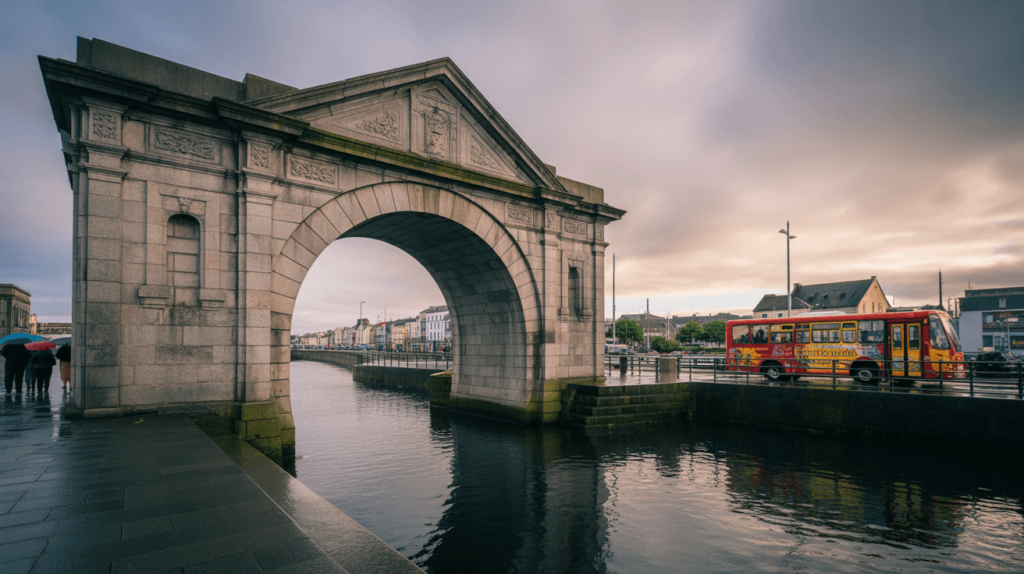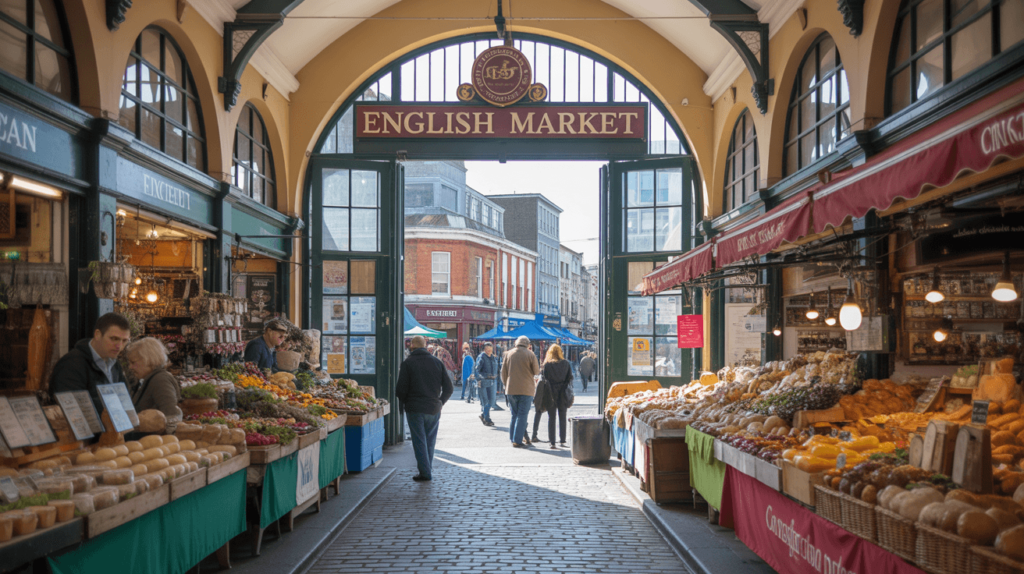Belfast, the capital of Northern Ireland, is a city where history, culture, and modern vibrancy blend seamlessly. Once primarily known for its industrial past and political conflicts, Belfast today has emerged as a thriving travel destination filled with world-class attractions, historic landmarks, artistic quarters, and a warm local spirit.
Visiting Belfast matters today more than ever because the city has transformed itself into a hub of cultural tourism. It offers travelers a chance to explore Northern Ireland’s history, discover the Titanic’s legacy, enjoy breathtaking murals, walk through Victorian architecture, and experience its thriving food and music scene. Whether you are traveling solo, as a couple, or with family, Belfast’s sights have something unique to offer.
In this guide, I’ll dive into everything you need to know about Belfast sightseeing—drawing from my own experiences walking its streets, historical insights, and practical tips for making the most of your trip.
Why Belfast is Worth Visiting Today
Belfast’s significance as a travel destination comes from its ability to showcase resilience and transformation. According to Tourism Northern Ireland, over 5 million overnight trips were taken to Northern Ireland in 2023, with Belfast being the most visited city. The tourism boom reflects the global fascination with its unique mix of history and modern lifestyle.
When I first visited Belfast, I was struck by the contrasts: in one moment, I was looking at vibrant street art on the Peace Walls, and in the next, I was sipping coffee in a chic café on a cobblestone street near the Cathedral Quarter. It felt like walking through chapters of history while enjoying the pulse of a modern European city.
Top Belfast Sightseeing Attractions
1. Titanic Belfast Museum
Perhaps the most iconic landmark in the city, Titanic Belfast is located in the Titanic Quarter where the famous ship was built. Opened in 2012, the museum tells the story of the RMS Titanic, from conception to construction and its ill-fated voyage.
The nine interactive galleries are state-of-the-art, and the building itself is an architectural masterpiece shaped like four ship hulls. For me, walking through the museum was emotional—you don’t just learn about the Titanic, you feel connected to the people who built it.
Tip: Book tickets in advance, especially in peak season, as it’s Belfast’s most popular attraction.
2. Belfast City Hall
Standing in Donegall Square, Belfast City Hall is a striking example of Baroque Revival architecture. Built in 1906, it symbolizes the city’s industrial prosperity. The guided tours inside are free and offer insights into Belfast’s political history and civic pride.
I remember being captivated by the marble interiors and the stained-glass windows, each representing different parts of Belfast’s story.
Tip: Visit the grounds in December when they host a beautiful Christmas market.
3. Peace Walls and Political Murals
Belfast is well-known for its murals, which depict political, cultural, and social narratives. Many of them are located along the Peace Walls that divided Catholic and Protestant communities during the Troubles.
Walking tours led by locals (often former political prisoners or community activists) provide fascinating first-hand perspectives. I joined a black cab tour, and it was one of the most memorable experiences, offering an authentic glimpse into Belfast’s recent past.
4. St. George’s Market
For a more relaxed sightseeing experience, St. George’s Market is a must-visit. Open since the 19th century, it’s filled with local food, crafts, antiques, and live music. Sampling traditional Irish soda bread here while listening to a fiddler was a highlight of my Belfast trip.
5. Crumlin Road Gaol
This 19th-century prison, operational until 1996, has been converted into a museum. The tours are engaging and sometimes eerie—you get to see cells, execution chambers, and learn about Belfast’s turbulent history.
Tip: If you enjoy spooky experiences, book the night ghost tour for an unforgettable thrill.
6. Botanic Gardens and Ulster Museum
Located in the Queen’s Quarter, the Botanic Gardens are perfect for a relaxing stroll, while the adjacent Ulster Museum offers free entry. The museum covers everything from fine art to natural history and even has a dinosaur skeleton on display.
It’s an ideal stop for families or travelers looking for a quieter sightseeing day.
7. Cathedral Quarter
Known as Belfast’s cultural hub, the Cathedral Quarter is home to art galleries, street art, and some of the city’s best pubs and restaurants. By day, you can explore its cobblestone alleys and murals; by night, the area comes alive with music and nightlife.
I personally loved Duke of York pub, which is covered in murals and filled with old memorabilia.
8. Belfast Castle and Cave Hill
Overlooking the city from Cave Hill Country Park, Belfast Castle offers stunning panoramic views. The castle grounds are beautifully maintained, and the hiking trails around Cave Hill are perfect for outdoor enthusiasts.
On my visit, I hiked up to McArt’s Fort, and the view of Belfast stretching out below was simply breathtaking.
9. Victoria Square and the Dome
If shopping is on your list, Victoria Square is Belfast’s main retail hub. But the real attraction is the glass dome, which offers 360-degree views of the city.
Seasonal Sightseeing: Best Time to Visit Belfast
- Spring (March–May): Mild weather, blooming gardens, and fewer crowds.
- Summer (June–August): Warmest season with festivals, but also the busiest.
- Autumn (September–November): Beautiful fall colors and moderate weather.
- Winter (December–February): Christmas markets, festive lights, but cold and damp.
Personally, I enjoyed Belfast most in late spring—the city felt lively but not overcrowded, and the weather was perfect for walking tours.
Practical Tips for Sightseeing in Belfast
Transportation
- Walking: The city center is compact and easy to explore on foot.
- Buses: Translink operates most public buses.
- Taxis & Black Cabs: A great way to see murals and get local insights.
- Belfast Bikes: Affordable bike rental system for short trips.
Safety
Belfast is generally safe, but like any city, stay alert in crowded areas. When exploring murals, stick to guided tours if you’re unfamiliar with the neighborhoods.
Budgeting
- Many attractions like the Ulster Museum and Botanic Gardens are free.
- Look for combo tickets (e.g., Titanic Belfast + SS Nomadic).
- St. George’s Market offers affordable meals compared to restaurants.
Food and Drink
Don’t miss traditional dishes like Irish stew, soda bread, and Ulster fry. For drinks, try local craft beers or enjoy a pint of Guinness at a traditional pub.
Common Questions About Belfast Sightseeing
1. How many days do you need in Belfast?
2–3 days are enough to cover major attractions, but a longer stay allows day trips to places like the Giant’s Causeway.
2. Is Belfast walkable?
Yes, the city center and main attractions are very walkable.
3. What’s the best way to see the murals?
A guided black cab tour offers the best insight.
4. Can you visit Belfast on a budget?
Absolutely—many attractions are free, and public transport is affordable.
Conclusion: Belfast as a Must-See Destination
Belfast has transformed from a city once associated with conflict into a vibrant, modern destination brimming with culture, history, and charm. From the Titanic Belfast museum to the political murals, from peaceful gardens to bustling markets, sightseeing in Belfast offers travelers an immersive and unforgettable experience.
In my own experience, what stood out most was the spirit of the city—welcoming, resilient, and always eager to share its story. Belfast is not just about sightseeing; it’s about connecting with a place that wears its history on its walls and its future in its heart.
If you’re planning your next trip to Northern Ireland, make sure Belfast is on your list. And if you’ve already been, I’d love to hear your experiences—what sights moved you most?

Hi, I’m Tanvir, the founder and author of Explore Ireland Now. With a deep love for Ireland and its rich culture, history, and landscapes, I created this site to share everything that makes this beautiful country worth exploring. Whether you’re a local looking for hidden gems or a traveler planning your next adventure, I provide insightful guides, tips, and recommendations to help you experience Ireland to the fullest.
From stunning landscapes to vibrant cities and quaint villages, Ireland is full of wonders waiting to be discovered. Through my personal experiences and research, I aim to bring you the most up-to-date information and inspiration for your journey.
Thank you for visiting Explore Ireland Now—I hope my content helps you uncover all that this incredible country has to offer! If you have any questions or need travel advice, feel free to reach out.


